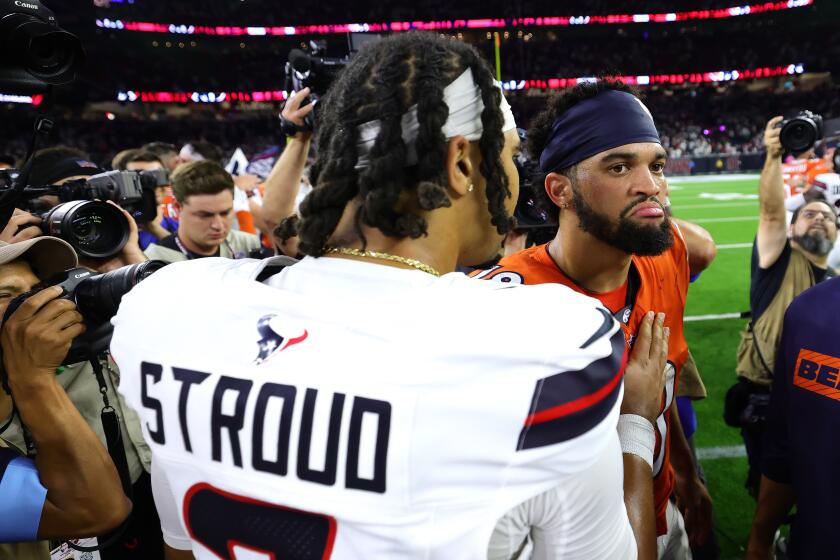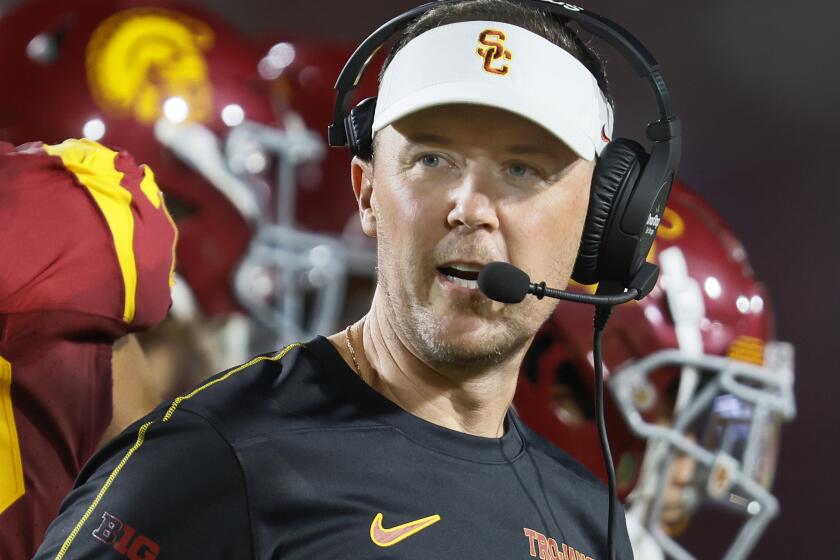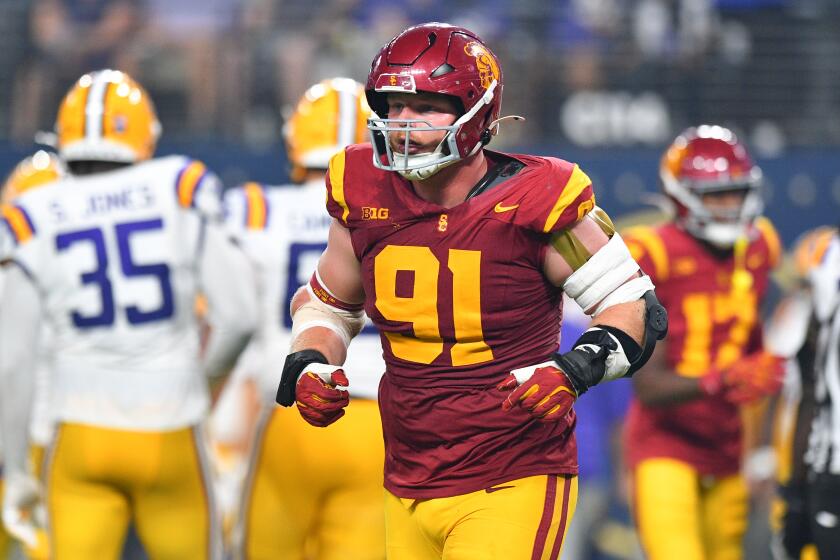Probably a Job for Someone Else : How can athletic departments administer their own drug tests?
The University of Southern California is proud of its winning football teams and has made a real effort in recent years to rebound from the cheating scandals that tainted that tradition a decade ago. But a recent investigation by The Times has uncovered problems that could mean new scandals unless controlled.
A team of Times reporters discovered that some USC football players were cheating on the urine tests that the university’s athletic department routinely administers to make sure players are not abusing drugs. Some of them evaded detection simply by buying “clean” urine samples from fellow students. Others went to ingenious lengths, devising bladder packs hidden underneath their clothing so they could simulate urination in case they were watched while taking the tests.
The first inkling that most USC fans had that something might be seriously amiss in the football program was the arrest last month of the team’s sophomore quarterback, Todd Marinovich, for cocaine and marijuana possession. He has since opted to leave school to pursue a career in professional football. Two days after Marinovich’s arrest, USC officials appointed a task force to examine whether the testing program was effective. The group is still at work, but has presumably found the same troubling pattern The Times staffers did.
To its credit, USC was among the first colleges to make drug testing mandatory for athletes. The school also offers help to student-athletes who are caught abusing drugs, and will expel repeat offenders. But because the school’s Student Health Services did not have a large enough staff to administer the tests effectively, control was transferred to the athletic department in 1989. That should have set off the alarm bells right away. After all, for USC--and all other universities that try to regulate the behavior of athletes while also trying to promote the teams they play on--that is a potential conflict of interest. Athletic officials may sincerely want to promote good behavior, but will they penalize an athlete whose presence on the field might make the difference between a win or a loss, or might guarantee the TV coverage that generates money for the school?
The assistant athletic director who oversaw USC’s testing program was preparing to recommend changes even before Marinovich was arrested. Sadly, that arrest now makes it difficult for anyone associated with USC athletics to oversee a testing program without questions arising about the program’s effectiveness. The best solution may be for USC and the schools it competes with--in the Pacific 10 Conference if not the entire National Collegiate Athletic Assn.--to create a commissioner’s office, or some other body with real clout, to administer drug testing and other athletic rules firmly and evenhandedly.
Go beyond the scoreboard
Get the latest on L.A.'s teams in the daily Sports Report newsletter.
You may occasionally receive promotional content from the Los Angeles Times.



